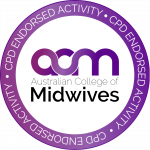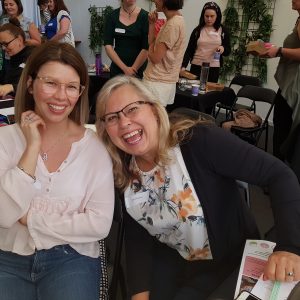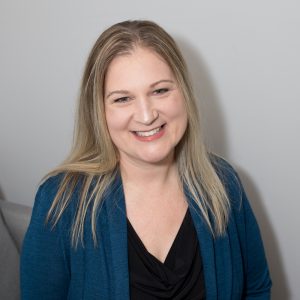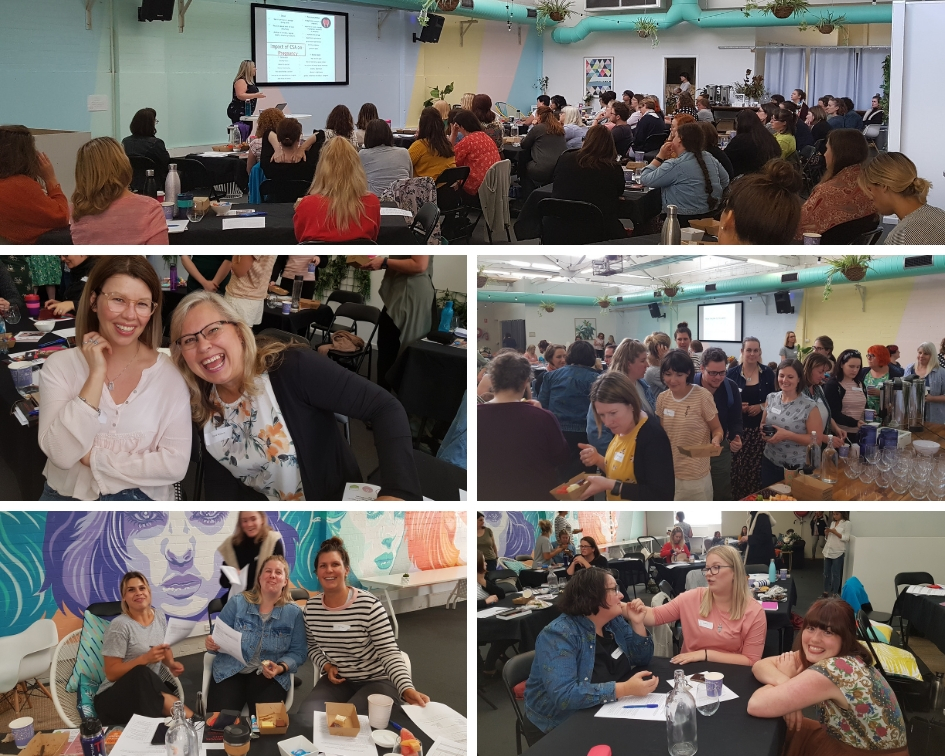WHEN SURVIVORS GIVE BIRTH
This important client care workshop focuses on understanding the effects of childhood sexual abuse and providing trauma informed-care to childbearing families. Join maternity care, mental health and allied providers to focus on one of the least understood, but most important issues facing pregnant clients.
- Advance your understanding of an all too common issue for childbearing women and families.
- Expand your care practices for women at risk of poor physical and psycho-social childbirth outcomes.
- Improve your response to women who express emotional concerns about childbearing
2024 Workshop
In 2024, Jenn will be offering a live, online training of When Survivors Give Birth, enabling many more people to participate.
Date: Saturday, March 16th, 2024
Time: 9:00am – 5:00pm Australian Eastern Standard Time
This course will be a live, virtual workshop on Zoom.
Participants will be provided with Zoom link and workshop materials prior to the start of the workshop.
Cost: NEW YEAR SALE! We are offering a limited number of spots for just $99! But hurry – first in, best dressed!
Continuing Professional Development
This workshop is approved for the following continuing professional development hours:

7.5 CPD hours have been awarded by the Australian College of Midwives for midwives who complete this activity.
Want a sneak peek? Watch this video presented by Jenn as she provides an overview of the topics covered in the full-day workshop.
Did you know that 1 in 5 Australian children experience sexual abuse?
Reference: Price-Robertson, Bromfield and Vassallo, 2010; Mills, Kisely, Alati, Strathearn, & Najman, 2016; Royal Commission into Institutional Responses to Child Sexual Abuse, 2017
When these children grow up, many of them will eventually have children of their own. What is the impact of childhood sexual abuse on pregnant, birthing and postpartum people?
According to the 2016 Australian Bureau of Statistics (ABS) Personal Safety Survey (PSS):
• Almost 2 million Australian adults had experienced at least 1 sexual assault since the age of 15
• In 2018, the rate of police-recorded sexual assaults against children aged 0–14 (167.6 per 100,000) was nearly twice that of people aged 15 and over (90.2 per 100,000).
Victims of childhood sexual assault may be at increased risk of:
• suicidal behaviour
• psychiatric disorders, such as schizophrenia and post-traumatic stress disorder
• substance misuse
• future victimisation and offending (Angelakis et al. 2019; Hailes et al. 2019; Ogloff et al. 2012).
If you are working with pregnant birthing and postpartum families, you will have clients who have been sexually assaulted, whether they self-identify or not. Nurses, midwives, physicians, mental health professionals, allied health professionals, doulas, or anyone working with childbearing people will gain knowledge and skills in this one-of-a-kind workshop, which is the culmination of decades of collaboration and research between Penny Simkin, PT, CCE, CD(DONA), and Phyllis Klaus, MFT, LMSW, authors of the 2004 ground breaking book, When Survivors Give Birth.
What attendees have said:

“This course is a must for any birth worker or health professional who works with pregnant women/people. Full of invaluable ways to support and help survivors and those close to them through the major transition of birth. Jenn was amazing to listen and learn from and the information was eye-opening on how important support, compassion and education on this topic is and how essential a course like this is for those working with birthing women.”
~ Gemma Wilson – Director, Birthability
Workshop Overview
- Common challenges experienced by the perinatal professional providing care to a sexual abuse survivor
- Types of abuse
- Brain development and brain changes as a result of trauma
- The impact of trauma on the brain and brain development
- Understanding toxic stress
- The impact of childhood sexual abuse on:
- Childhood
- Adulthood
- The pregnancy period
- The birthing period
- The postpartum period
- Clinical challenges and possible solutions
- Triggers and how to help your clients manage them
- Supporting abuse and trauma survivors through the childbearing year
- Navigating the birthing experience without experiencing additional trauma.
- Post-Traumatic Stress Disorder
- The importance of consent
- Tools for provider self-care
- Regulation
Learn more about When Survivors Give Birth from author Penny Simkin.
Why Should You Take this Workshop?
This is a heavy topic that is essential for anyone who works with birthing families. Jenn navigates this sensitive topic with professionalism, skill and intention in order to support every attendee who joins the workshop.
The pregnancy, birthing and postpartum period is a time of great vulnerability for the expectant or new parent. There are many things intrinsic to this period that can trigger survivors and create additional trauma.
Childhood sexual abuse survivors overall can experience:
- Longer labours
- Negative birth experiences
- Disturbing memories of childhood sexual abuse during delivery
- Major difficulty with procedures such as vaginal exams, feeling a loss of control and a potential lack of modesty.
- Trauma re-organizes the way that the brain manages perceptions. It is complex and people respond to trauma in different ways. The more we can understand how to support the survivor, the more we can meet the needs of each individual person and help them to move through the childbearing year with confidence.
After attending this workshop, you can begin to hone your skills as a provider in this area and make a huge difference by helping to support a positive experience for survivors. Creating an environment of safety, dignity and personal control with understanding, empathy, and connection are the cornerstones to trauma-informed care.
Meet your Facilitator

Jenn Fontaine LCCE, FACCE, CD(DONA), BDT(DONA), PCD(DONA), CLE, DONA International Birth Doula Trainer
Jenn Fontaine has completed numerous courses in trauma work and was personally trained by Penny Simkin in birth trauma work. She travels around the world as a workshop facilitator and conference speaker helping others understand how trauma can affect the childbearing years.
Jenn grew up in a home with foster brothers and sisters and saw the effects of sexual abuse and trauma on children. As a birth professional, she recognized similar behaviours and starting making connections in some clients that she worked with.

